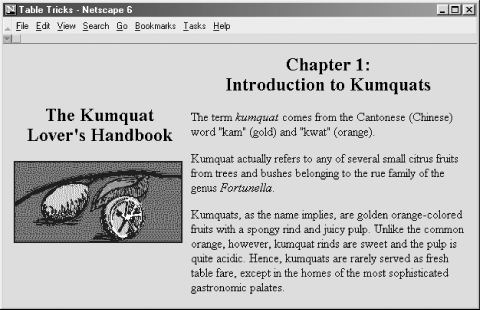2.10 Tables
For
a language that emerged from academia — a world steeped in
data — it's not surprising to find that HTML
(and now its progeny, XHTML) supports a set of tags for data tables
that not only align your numbers but can specially format your text,
too.
Five tags enable tables, including the
<table> tag itself and a
<caption> tag for including a
description of the table. Special tag attributes let you change the
look and dimensions of the table. You create a table row by row,
putting between the table row
(<tr>)
tag and its end tag (</tr>) either table
header
(<th>) or table data
(<td>) tags and their
respective contents for each cell in the table (end tags, too, with
XHTML). Headers and data may contain nearly any regular content,
including text, images, forms, and even another table. As a result,
you can also use tables for advanced text formatting, such as for
multicolumn text and sidebar headers (see Figure 2-5). For more information, see Chapter 10.

|



